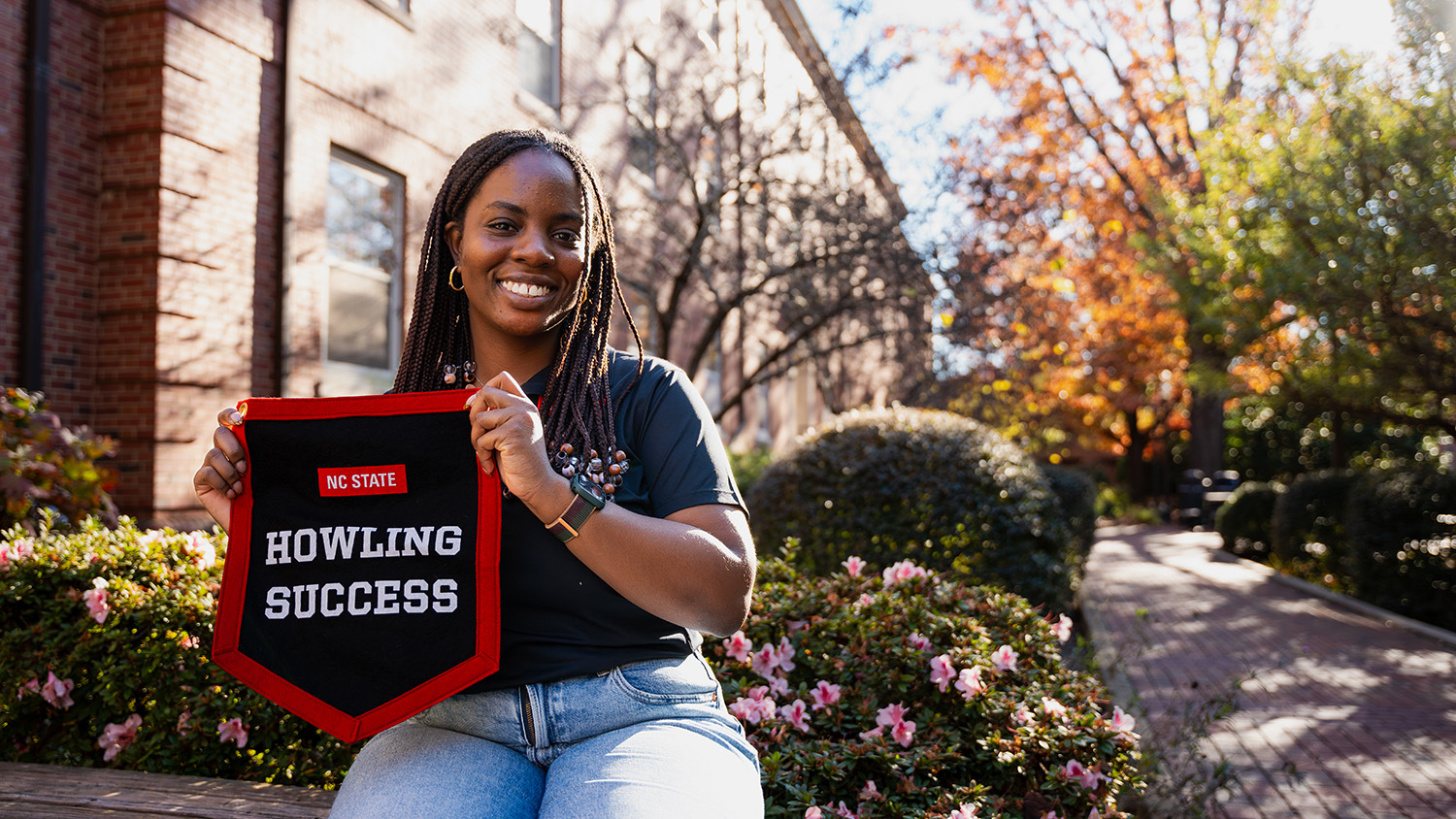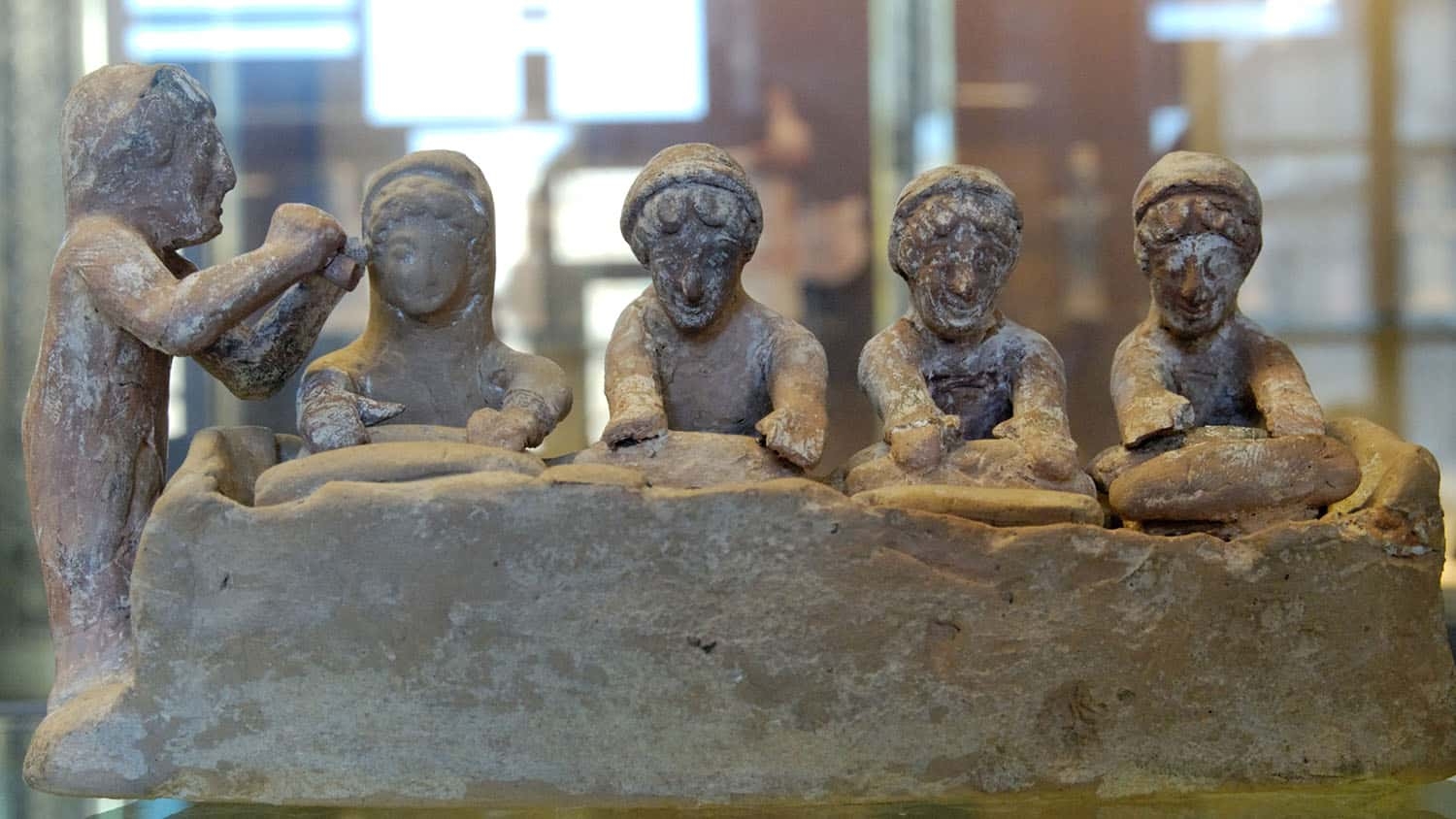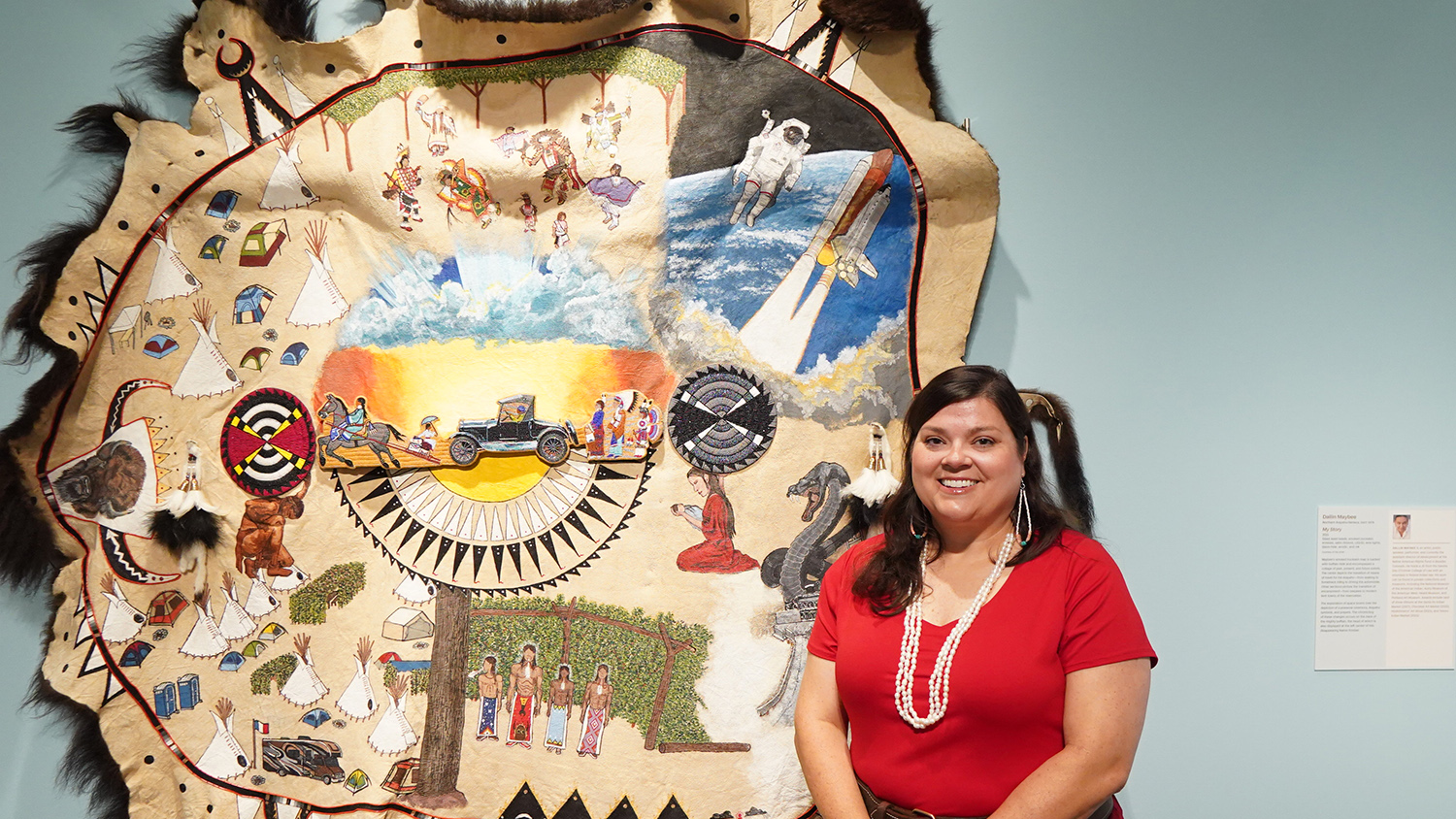After completing her undergraduate program at the University of Georgia, Ore Badejoh began searching for a graduate program.
She wanted to find one that highlighted the applied aspect of her research interests, and a place that would allow her to put that into practice. At NC State, Badejoh, in her second year in the university’s applied social psychology Ph.D. program, has found exactly that.
Through her work with Pack Peers and the Black Health Lab, Badejoh gains hands-on experience promoting healthy choices for her community.
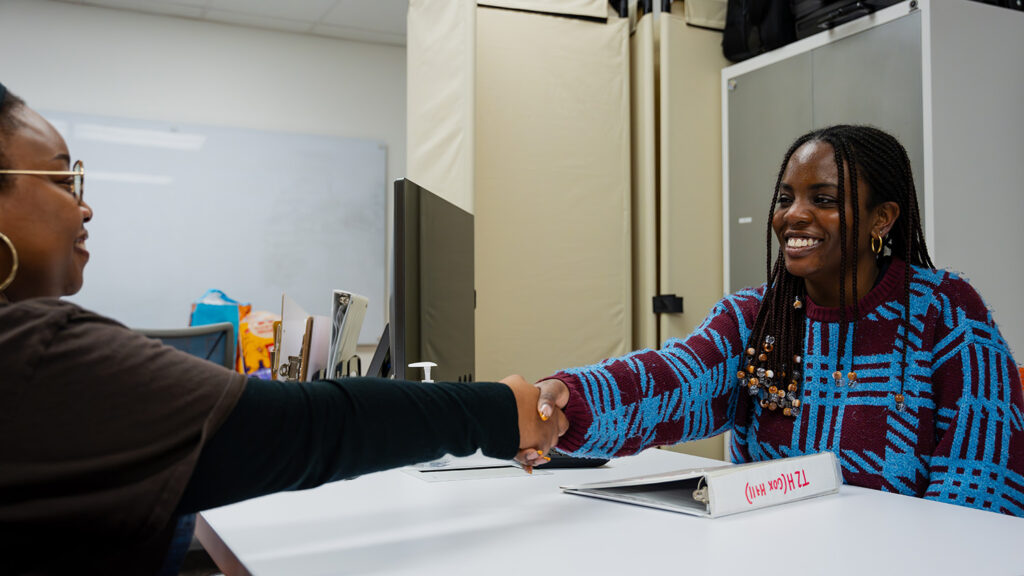
“I think I’m most interested in not just understanding why humans are the way we are, but understanding social connection and the impact that other individuals have on our lives, from our health to our healthy behaviors, to forming our identities, and so much more,” Badejoh said.
Promoting Healthy Choices
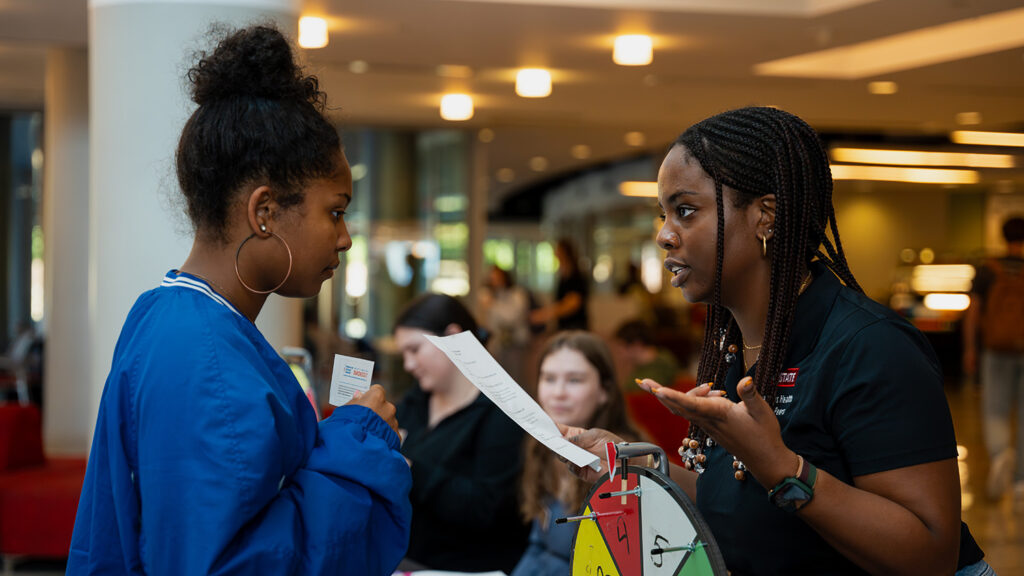
Last spring, Badejoh joined Campus Health’s Pack Peers student organization. Under the leadership of Health Educator Daniel Passonno, the program promotes holistic health for fellow students by educating them on topics such as alcohol and other drugs, sexual health and consent, stress management, healthy sleep, self-care, healthy habits, general wellness and others.
“I’m really interested in health promotion,” Badejoh said. “I’m just drawn to it because I love how it’s a way to bridge that gap between students and the resources they need by being a student they can seek support from. I love that students can turn to another student to understand what matters with their health and their wellness.”
The Pack Peers meet biweekly to plan tabling events and other events on campus to promote general health and wellness for students, and student members of the program, including Badejoh, volunteer at various Campus Health informational programs throughout the school year.
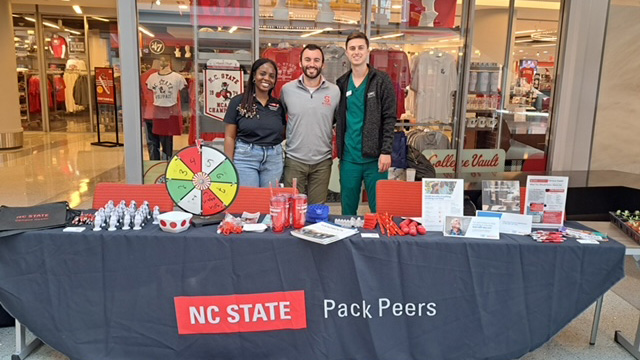
“As a peer educator, Ore has brought contagious enthusiasm, positive attitude and dedication to meetings, is always respectful to all other members and volunteers for many events throughout the year,” Passonno said. “She connects with students at these wellness programs and strives to promote health-enhancing behaviors as a peer educator.”
Working with the Pack Peers organization allows Badejoh and her fellow peer educators to reach their students with critical health messaging in a unique way.
“That’s so important, because I think that can be intimidating or just more difficult for students to seek support from an authoritative or adult figure,” Badejoh said. “So when it’s your peer, I think it allows them to feel more comfortable about what they may be experiencing, what their highlights and struggles with being a college student are. Because it’s such a big transition point in your life, and you’re really just figuring out who you are and what you want.”
Researching for Community-Informed Health
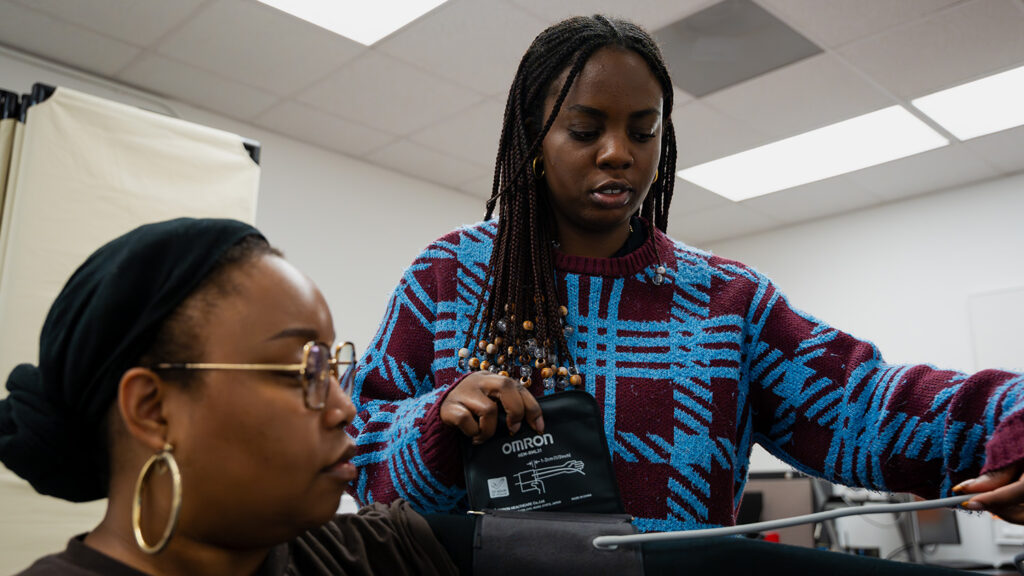
Under NC State’s Department of Psychology, the Black Health Lab is a psychology research group dedicated to informing efforts to achieve health equity and wellness for Black people across the United States.
Badejoh is a graduate research assistant for the Black Health Lab, and focuses on promotive factors for mental and physical health and well-being outcomes for Black young adults, especially in online spaces.
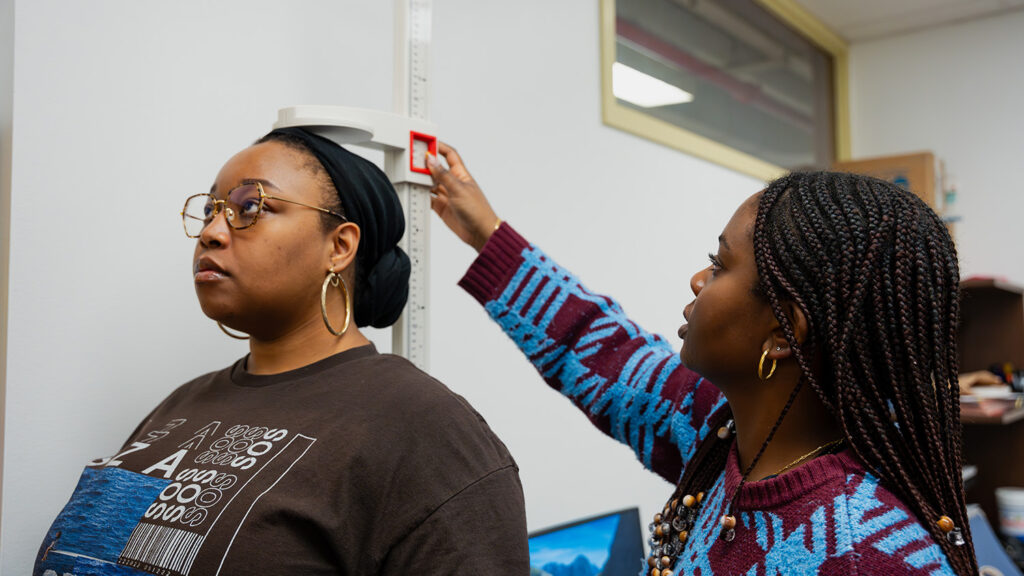
“Black young adults sometimes deal with unique stressors related to the intersection of their race and/or gender,” Badejoh said. “As a research assistant, I’ve been able to dive into those interests, bridge gaps and reach students with the work that we do. We often try to collaborate with different student organizations or units on campus such as the African American Cultural Center and present on different health-related concepts – managing stress as a Black college student, things like that.”
For Badejoh, working with the Black Health Lab is a way to see the direct application and benefit of her research.
“I think it’s really rewarding,” Badejoh said. “I think sometimes when you do research, you get stuck in the numbers of it all or what you’re seeing on paper. It’s great to be able to take that and get the word out to students. By understanding what we see in the literature, we can see how it applies to our own lives and understand how we can better take care of our health, and better take care of ourselves, because it can make a difference down the line.”
Moving Forward
When she has downtime on campus, Badejoh enjoys reading and exploring local restaurants, with Noodle Boulevard in Cary standing out as a recent favorite.
Badejoh is set to complete her Ph.D. program in 2027 and is figuring out what her next steps will look like.
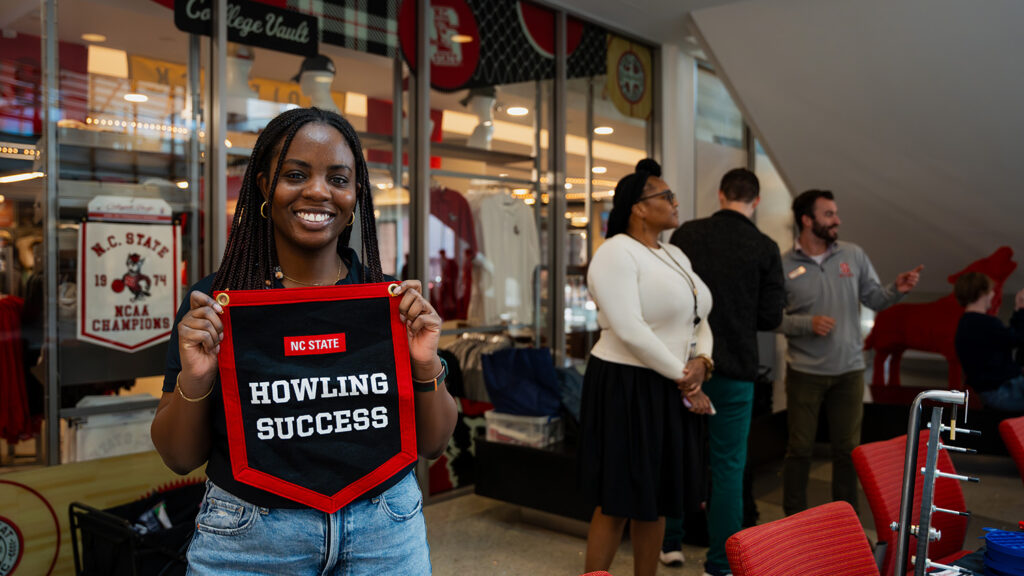
“I really am interested in either a government role, nonprofit or a research institute focused on these aspects of health promotion, and just understanding how important it is to reduce these health disparities for Black populations or minority populations, but also just to promote all aspects of health,” she said.
Going forward, Badejoh’s experience researching and promoting healthy behaviors at NC State will serve her well.
“Since college brings a new sense of independence for individuals and ushers in a time for many new changes, she is determined to promote healthy choices, connect students to community and provide resources that will set them up for a lifetime of health and well-being,” Passonno said.
This post was originally published in DASA.
- Categories:
